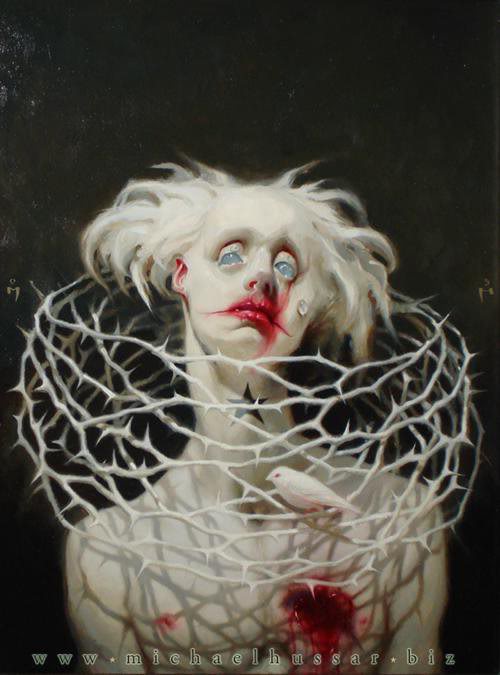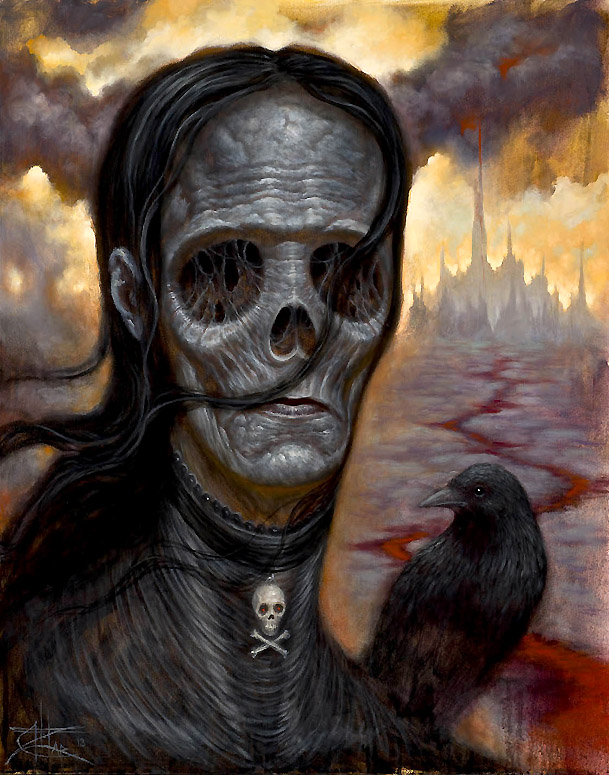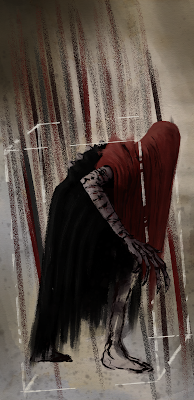What does the game look like?
What are the possible visual influences?
Does the game offer inter-textual references?
Structural Framework:
How do the rules and conditions of the the game create conflict?
Are the players struggling against the each other the game or both?
What are the interactive experiences provided for players in the game?
What feedback does the game offer?
Critical Framework:
Consider the game in terms of context:
Origin
Year of manufacture
Company (do the have a 'house style')
Target Audience
Make a comparison:
What strategies do the games use to persuade the player?
How do they gain and retain an audience? (Who is that audience?)
How do they achieve or fail achieve their goal?
For the game which could be used for education I chose Portal and Portal 2 which was developed by Valve and released in 2007 and 2011. The company Valve is best known for games such as Half-Life and Counter Strike yet are also known for making these quirkier games, I feel that the target audience for this game is for teen upwards and anyone who is interested in puzzle games and problem solving. Both Portal games have a very appealing aesthetic look as it is quite minimalistic and stylish yet with pops of colour which act as not only a nice change of scenery from the white hallways but also as signifiers of interactive elements in the level. This game has incredibly good and responsive gameplay but most importantly it is fun to play and engage with. Portal lends itself to education in so many ways firstly it’s quite a well-known game franchise now which will interest the kids before even playing, yet the game is all about different physics interacting with one another and problem solving, which could be extremely useful in physics lessons. I am not the only one who see this potential as Valve themselves have released a free limited version of portal with a level editor which will enable teachers to craft fun exercise for students, this is a quote from the website learnwithportals.com ‘Using interactive tools like the Puzzle Maker to draw students in makes physics, math, logic, spatial reasoning, probability, and problem-solving interesting, cool and fun, which gets us one step closer to our goal – engaged, thoughtful kids!’
'Using interactive tools like the Puzzle Maker to draw students in makes physics, math, logic, spatial reasoning, probability, and problem-solving interesting, cool and fun, which gets us one step closer to our goal – engaged, thoughtful kids!'
(http://www.learnwithportals.com/)
Can Portal Lead To Better Educational Games?
Are educational games broken? Can Portal help fix them?
Speaking during a Rants session at the Games for Change conference in New York today, educators Scott Kirk (CEO, GameGurus) and Jodi Asbell-Clarke (Director, EdGE ) said perspectives like Valve's could help shed a light on the best way to make educational games more fun. Asbell-Clarke pointed to Portal's developer commentary as one of the most useful lessons she's found.
"It's magic," Asbell-Clarke said. "They're telling you why they built the pedagogy they did, what happened in the play-testing that gives you their level of learning... I've been an educator for 20 years, and I learned so much from that game."
Kirk talked about attending a UNICEF conference on education, noting that he was disappointed by the results.
"It was clear to me that the people trying to make fun games just weren't fun people," he said.
Although the pair didn't dish out any solutions to the longrunning dilemma of how to balance fun and education, they did tout the values of play-testing and other Portal-esque ideas.
Their final words of wisdom? "Make games that just don't suck."
(http://kotaku.com/5919745/can-portal-lead-to-better-educational-games)
'Valve has revealed Steam for Schools, a cool initiative that brings the joys of learning with Portal 2 to America's classrooms, at the Games For Change Festival. Steam For Schools, launching in a limited beta, will provide a limited Steam Client and a tailored version of Portal 2, along with the level editor and a workshop for hosting and organizing user-created levels. It will be free to teachers, who will have administrator access so that they can control what levels get shared.'
(http://www.gamepolitics.com/2012/06/20/valve-reveals-portal-2-educational-program#.VSrCTvnF8g8)
The educational game I have chosen is the BBC Bitesize game 'State of Debate'. This is the description of the game:
State of Debate
It's the year 2020 and Just-Co have banned hoodies, and you've
just been spotted wearing one. Can you talk your way out of trouble
using your English Language skills?
This game is all about arguing your way out of problems using English skills. To me this doesn't seem either educational or fun.
It's also filled with horrible acting and that is the whole game with just watching these clips then clicking the right choice then watching some other horrible scene
My task for the Political game is this
Breif synopsis of the game:
Set in 1912, the game has the protagonist, former Pinkerton agent Booker DeWitt, sent to the floating air city of Columbia to find a young woman, Elizabeth, who has been held captive there for most of her life. Though Booker rescues Elizabeth, the two become involved with the city's warring factions: the nativist and elite Founders that rule Columbia and strive to keep its privileges for White Americans, and the Vox Populi, underground rebels representing the underclass of the city. During this conflict, Booker learns that Elizabeth possesses strange powers to manipulate "Tears" in the space-time continuum that ravage Columbia, and soon discovers her to be central to the city's dark secrets.
(http://en.wikipedia.org/wiki/BioShock_Infinite)
This game is all about arguing your way out of problems using English skills. To me this doesn't seem either educational or fun.
It's also filled with horrible acting and that is the whole game with just watching these clips then clicking the right choice then watching some other horrible scene
Political Game:
My task for the Political game is this
- Play a political game.
- Is it deliberately political Or TANGENTIALLY political?
- Is it fun? If not, why not. If it is fun, how does it achieve that engagement for the player? Does the game emphasise player agency?
- What are the rules of the system? - what does the game allow you to do
- Does it employ procedural rhetoric?
- What do the rules mean in relation to the real world? - are the themes relateable
- How do I feel in response to the rules of the game? Manipulated? Happy to engage? Why?
Breif synopsis of the game:
Set in 1912, the game has the protagonist, former Pinkerton agent Booker DeWitt, sent to the floating air city of Columbia to find a young woman, Elizabeth, who has been held captive there for most of her life. Though Booker rescues Elizabeth, the two become involved with the city's warring factions: the nativist and elite Founders that rule Columbia and strive to keep its privileges for White Americans, and the Vox Populi, underground rebels representing the underclass of the city. During this conflict, Booker learns that Elizabeth possesses strange powers to manipulate "Tears" in the space-time continuum that ravage Columbia, and soon discovers her to be central to the city's dark secrets.
(http://en.wikipedia.org/wiki/BioShock_Infinite)
Here are a few articles on Bioshock's political agenda:
Interview: Ken Levine on American history, racism in BioShock Infinite: "I've always believed that gamers were underestimated."
Evan Lahti
In between gathering good and ungood impressions of BioShock Infinite during my hands-on last week, I had a chance to talk with creative director Ken Levine about the game's interesting expression of American history and social issues like racism.
Along those lines, how do you think the experience of someone that isn't a US citizen playing BioShock Infinite will differ?
Levine: At the end of the day… It's hard for me to talk about where all that element is going in the game. Not the element of “the foreign element,” but the thematic elements you're talking about, where they're going. Because they may not be going where you think they're going. This may not be about, necessarily, what you think it's about. In the same way I really think BioShock wasn't truly about a critique of Objectivism. I think it was about something else....Then, when we sort of exposed the Vox Populi people, I saw a lot more left-leaning websites being like, “This is trying to tear down the labor movement!” I remember that I saw postings, unfortunately, on a white supremacist website, Stormfront, where people literally said, “The Jew Ken Levine is making a white-person-killing simulator.”
In some ways it feels like Columbia , as a setting, lays bare the worst of American history. Do you or does BioShock have a cynical or a negative view of American history?
Ken Levine: As a student of American history, it is a much broader story than what's shown in Columbia, but I don't feel that it's the purpose of the game or the responsibility of the game to be a survey of American history. Certainly there are many things that are in Columbia that were very prevalent at the time, whether it's charismatic religious movements, whether it's a sense of growing nationalism—which was very present at the time...I realized, in BioShock, that we didn't have any minority characters. Well, we had a lot of Jewish, Eastern European Jewish characters, which probably comes from my background. Whether it's Ryan or Tenenbaum. And that game was suffused with the immigrant experience to some degree. But we didn't have African-American characters. We didn't have Chinese characters. It's very important to us that we diversify. Not because… I'm not like, “Oh, we have to have diversity because it was unrepresentative of reality, and I want to be representative of reality.” I wanted to be representative of reality, but that reality was a particular reality to a level that most people don't even understand. Most people don't know how Catholics were viewed in this country, or how the Irish were viewed in this country. They were viewed as… I use this term obviously not from myself, but at the time they were viewed as subhuman by some people. When we had our first Catholic president in 1960, many people thought he was going to be an operative of the Pope. He had to publicly proclaim that he wasn't. We're fortunate to grow up in a time where a lot of that is behind us. But this game wouldn't be honest if we didn't have that.
(http://www.pcgamer.com/bioshock-infinite-interview-ken-levine-racism-history/)
These are some of the in-game posters which show off the political topics and themes in the game which help set this environment in a believable world and somewhat grounded (although Columbia is a floating city) these small touches help push the story forward and are not in your face to the point of look at how racism and religion was perceived back then, the game gives you the option to absorb the harsh realities if you wanted too, or you could just run through the game shooting.
-Player agency is where the player feels like they are making a difference and having an impact on the game -
- Is it deliberately political Or TANGENTIALLY political? :
- Is it fun? If not, why not. If it is fun, how does it achieve that engagement for the player? Does the game emphasise player agency?
- What are the rules of the system?
- Does it employ procedural rhetoric?
- What do the rules mean in relation to the real world?
- How do I feel in response to the rules of the game? Manipulated? Happy to engage? Why?
TASK for Wednesday May 13th
• Decide on a subject area: Educational, Political, or Artistic games
• Research a reading list
• Write an essay proposal of 250 - 500 words based around a specific question that your research so far suggests
• Make reference to: what research resources you will use and why they are relevant
First I'm going to look into political games, It's going to be about a contrast with games that are attempting to put forward a viewpoint and I will look at the rules of the game and analysis the situations they put the player in as well how the mechanics of the game emphasis that. I will contrast these games with those that weren't deliberately meant to be polemic. I will then be able to explore the persuasive power of games.
Political:
Games attemping to put forward a viewpoint that I will look at
Bioshock and Big Pharma (not released yet. but the idea and mechanics behind it are still valid and there a numerous videos showing the gameplay and developer diaries.)
I will contrast those games against:
Papers Please in which it was not designed to be a political and social commentary yet the situation the game puts the player shows how having to actual partake in the actions of the game suddenly bring to light the themes, And Civilisation 5 as it is not meant to be a political statement yet the acts you have to commit and the various ways in which you win could be seen as one.
Reading list and research:
An interesting video which I will be using as reference for my essay as it has some compelling points about some of the games I chose and about politics in videos games in general.
Excerpts from the article:
Tim Wicksteed is a British game-maker currently working on Big Pharma, a simulation game in the vein of Sim City, that challenges players to build and maintain a multinational pharmaceutical company. By basing the game on research, rather than his own opinion, Wicksteed hopes to provide an insight into this notoriously problematic industry.
“The more I read about pharmaceuticals, the more interesting stuff I have to work with,” says Wicksteed. “The real-life industry presents so many ideas that make good gameplay mechanics – it’s doing a lot of the design work for me.
As well as inspiring the mechanics of Big Pharma, Wicksteed’s research has made him mindful of bias. Rather than make sweeping judgments, his goal is to present the pharmaceutical trade as objectively as possible.
“When you put together the capitalist ideal – this is a business, businesses have to make money – with something as personal as creating drugs that save lives, there’s bound to be friction,” Wicksteed explains. “So decisions aren’t black and white. The pressure to make profit forces people into them.
(http://www.theguardian.com/technology/2014/nov/10/computer-games-swap-shoot-em-ups-halo) - accessed 10/05/2015 -
Excerpts from the article:
Wicksteed and team didn't set out expressly to "inform, empower and change" -- the idea was for a Tycoon style game, just an addition to the popular simulation genre. "I started out thinking 'a game about making drugs sounds cool!' But the more research I conduct and the more I learn about the industry, the more I feel a duty to make this game right," says Wicksteed, "to fairly portray both the people who work in this industry as well as those who are hurt by it."
According to Wicksteed, at the heart of Big Pharma, is the question, "are the goals of running a profitable business ethically compatible with the goal of making people healthy -- We don't try to answer the question, just ask it."
According to Wicksteed, at the heart of Big Pharma, is the question, "are the goals of running a profitable business ethically compatible with the goal of making people healthy -- We don't try to answer the question, just ask it."
"Then you have the moral grey areas which result when you try to align the goals of running a profitable business with those of making people healthy," Wicksteed explains. "Life-saving drugs are shunned in favor of ones which treat (but importantly do not cure) chronic illnesses; companies are incentivized to simply copy their competitors and tweak the formulas rather than create new cures; and treatments for rich Westerners are prioritized over those sorely needed by the poorest communities around the world."
Wicksteed hopes the game gets people educated and thinking about the issues. "I'm trying to keep the game as neutral as possible. I want to make certain things possible and I want to represent the consequences of these things as realistically as I can," he says. "That way, players can explore the issues and make up their own mind about how one might ethically navigate this landscape."
(http://gamasutra.com/view/news/228463/New_social_issue_games_tackle_education_big_pharma.php) - accessed 10/05/2015 -
Excerpts from the article:
Through all of the chaos of a collapsing city, Ryan’s assuring voice guides you along. Games have conditioned us to automatically trust what is being told, so long as it advances us toward the end. Like Ryan, we’re blind to outside influence. When it’s finally revealed by Ryan that we’re brainwashed, it’s too late to react. He has a hold on us; only then do we regret the habits that decades of video games have instilled in us. In this way, we’re lumped in with Rand; we accepted something without consideration.
Bioshock asks the player to question the game, rather than follow it blindly out of habit. Like Rand, both the player and Ryan are guilty of the latter. Through the use of an interactive narrative, Bioshock made us examine the rules of video games much like people have questioned the ideas of Rand.
“I started to wonder, what happens when you start questioning yourself?” Levine said. “It becomes a set of accepted truths, instead of something you’re constantly using in the lab of reality.
“I started to wonder, what happens when you start questioning yourself?” Levine said. “It becomes a set of accepted truths, instead of something you’re constantly using in the lab of reality.
Bioshock’s antagonist, Andrew Ryan, is known for his soothing voice and unpredictable nature. But past his surface features, allusions both obvious and subtle connect him to famed author Ayn Rand, creator of the objectivist philosophy.
Aside from the fact that Andrew Ryan’s name is a partial anagram of Ayn Rand, the duo’s beliefs mirror each other’s as well. Ryan’s looming bust gazes down on you as you arrive in Rapture. A banner sports the slogan, “No Gods Or Kings. Only Man.” As the story of Bioshock progresses, it becomes painstakingly clear that much of what happened to Rapture was due to the chaos resulting from Ryan’s ideals.
(http://www.gameinformer.com/b/features/archive/2012/12/06/social-commentary-in-bioshock.aspx) - accessed 10/05/2015 -
Excerpts from the article:
VIDEO GAMES: THE NEW LITERATURE
When BioShock hit, it was met with both high game review scores and a level of intellectual fascination that surprised even Levine.
When BioShock hit, it was met with both high game review scores and a level of intellectual fascination that surprised even Levine.
“We joke that everyone should have known that a game about a pseudo-objectivist dystopia would be a huge hit,” he said. “My initial goal for BioShock was to create an environment that people could buy into and to have a level of detail that you just don’t see in games now. We have an opportunity to have players pull content out of the game rather than to push it at them.”
But in wrapping their world around questions of morality and philosophy, Levine and his team managed to do something else, they managed to spark in some players the desire to, like Levine, step back from their beliefs, their ideologies and study them from afar.
“I like that people walk away with different interpretations,” he said. “We weren’t creating a polemic, we were creating a piece of art that has different meanings to different people.
“We were trying to ask questions more than answer them.”
While the game can certainly be viewed as an attack on objectivism, despite Levine’s intent, Brook says he really doesn’t have a problem with it, or with the idea of the medium of video games taking on the challenge of dealing with an issue as complex as Rand’s philosophy.
“I don’t see a problem with the medium,” he said. “I think it is potentially a very exciting medium with which to introduce people to ideas. I think video games replaces much of literature’s impact. The literature today is dull and boring and video games allow kids to experience the heroism that the books don’t provide them.
“Who knows where the medium is going I think that’s one of the exciting things about video games and technology. I think it will be interesting to see what kind of issues they take on.”
(http://www.kotaku.com.au/2008/02/no_gods_or_kings_objectivism_in_bioshock-2/) - accessed 10/05/2015 -
Excerpts from the article:
Naturally, people who complain about not wanting politics in their games are probably not genocidal racist maniacs, but they probably are boring. It’s indicative of a fear of being challenged, and a desire to impose your own worldview. Without politics, Bioshock is pretty much just an underwater shooter. Papers, Please is just a paperwork simulator. I don't quite subscribe to the notion that all art is political by default - it's fun to theorise about the political situation of the Mario universe, but it's also nonsense. But the extremely obvious fact is that political themes often greatly enrich a story, and sometimes give it thought-provoking real-world context that gives it an intellectual life and vibrancy outside the confines of the game (or book, or painting) itself.
(http://www.kotaku.co.uk/2015/03/23/why-everyone-should-want-politics-in-their-video-games) - accessed 10/05/2015 -
I will use some books as well to further my research
The Art of Videogames by Grant Tavinor
Quotes from the book:
‘Videogames
are also increasingly morally aware. Having often been the subject of ethical
criticism, gaming is now showing signs of taking itself seriously as an art
form with moral implications.’
‘A position
where they cannot help but ponder the morality of their actions.’
‘In a long
list of games such as Bioshock….though narrative is scripted, the player has an
important role in discovering the facts of the narrative through their
interaction.’
‘Sometimes,
untrustworthy sources of information are integrated into these narratives of disclosure,
further complicating the player’s ability to reconstruct a coherent game
narrative, and indeed making their contribution to the narrative more robust by
allowing them to resist the narrative that is being fed to them.’
‘The view of
the world that is disclosed to the player, is eventually revealed to be a
dissemblance.’
‘The game’s
narrative is about freewill and morality: how we control our own actions and
those of others, and how we resist the control of other people with our own
(hopefully, better) judgement.’
‘The Little
Sisters are moral locus of Bioshock.’
‘The little
girls most effectively and sentimentally manipulate our emotions of sympathy
and care.’
‘Videogames
hope to express a morally serious point of view.’
‘Morally reflexive
in a way fitting with the arguments of cognitive moralism.’
Persuasive Games: The Expressive Power of Videogames by Ian Bogost
Quotes from the book:
‘Procedural
rhetoric, then is a practice of using processes persuasively. More
specifically, procedural rhetoric is the practice of persuading through
processes in general and computational processes in particular…so procedural
rhetoric is useful for both the programmer and the user, the game designer and
the player.’
‘Procedural
rhetoric is a technique for making arguments with computational systems and for
unpacking computational arguments others have created.’
‘Just as
photography, motion graphics, moving images, illustrations have become persuasive
in contemporary society, so have computer hardware, software, and videogames.’
‘Procedural
rhetorics afford a new and promising way to make claims about how things work.’
‘Videogames
are often interactive…as such they provide particularly promising opportunities
for the procedural translation of rhetorical devices like enthymeme.’
‘Interactivity
guarantees neither meaningful expression nor meaningful persuasion, but it sets
the stage for both. Sid Meier, designer of Civilisation, has argued that
gameplay is “a series of interesting choices.”
‘Procedural
rhetoric might be deployed in such games, but more often persuasion is
accomplished through more basic appeals to addiction and reinforcement.’
‘If
persuasive games are videogames that mount meaningful procedural rhetorics, and
if procedural rhetorics facilitate dialectical interrogation of process-based
claims about how real-world processes do, could, or should work, then persuasive
games can also make claims that speak past or against the fixed worldviews of
institutions like governments or corporations.’
‘Using procedural
rhetoric to support or challenge our understanding of the way things in the
world do or should work. Such games can be produced for a variety of purposes,
be they entertainment, education, activism, or a combination of these and
others.’
‘Many games
carry messages, make arguments, and attempt meaningful expression.’
‘When we
interrogate political issues as procedural systems – as emergent outcomes of
interconnected, independent rules of cultural behaviour – we can gain a unique
perspective on such problems.’
‘Procedural
representations of political processes also engender expression rather than
prediction or validation. Procedural rhetorics in political videogames make
claims about the particular interrelations between political processes, why
they work, why they don’t work, or how society might benefit by changing the
rules.’
‘One popular
genre of commercial videogames offers procedural representations of history, a
field grounded in similar material and social conditions as politics. These
games create representations of casual factors that shaped either particular
historical events or the general progression of human history. Some of those
games serve as explicit political commentaries while others do so implicitly.’
‘In
Civilisation, material and technological innovation enables civic and military dominance,
which the player must exercise to progress through history effectively.’
How to do things with Videogames by Ian Bogost
Quotes from the book:
‘We can understand
the relevance of a medium by looking at the variety of things it does.’
‘Understanding
the properties of a medium does help us better comprehend their nature and
their implications.’
‘Games are
models of experiences rather than textual descriptions or visual depictions of
them. When we play games, we operate those models, our actions constrained by
their rules.’
‘Videogames
are a medium that lets us play a role within the constraints of a model world.
And unlike playground games or board games, videogames are computational, so
the model worlds and sets of rules the produce can be far more complex.’
‘Serious games
claim to offer an alternative: games that can be used “outside entertainment”
in education, health care, or corporate training.’


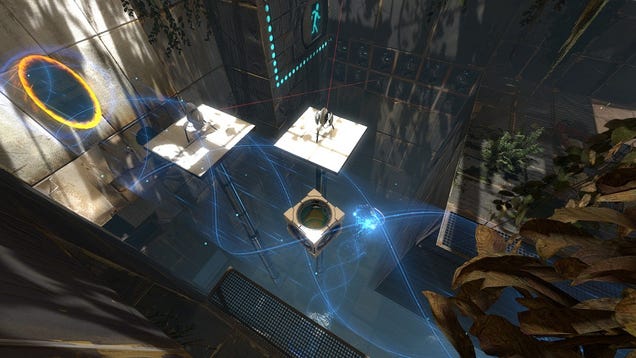















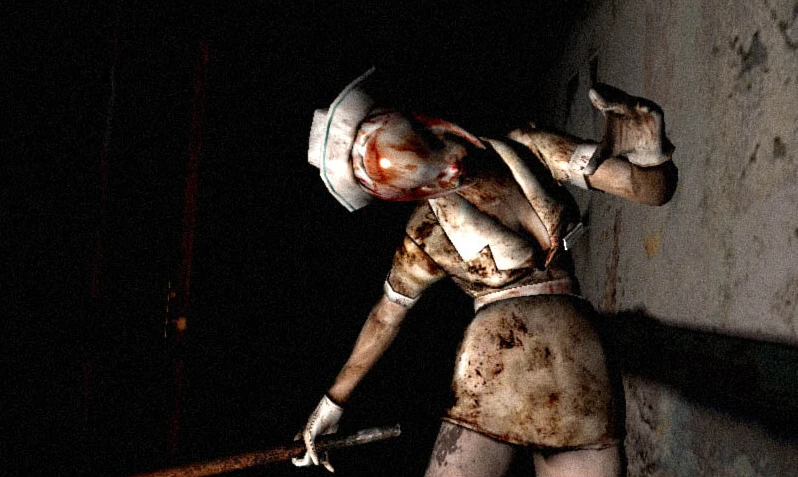

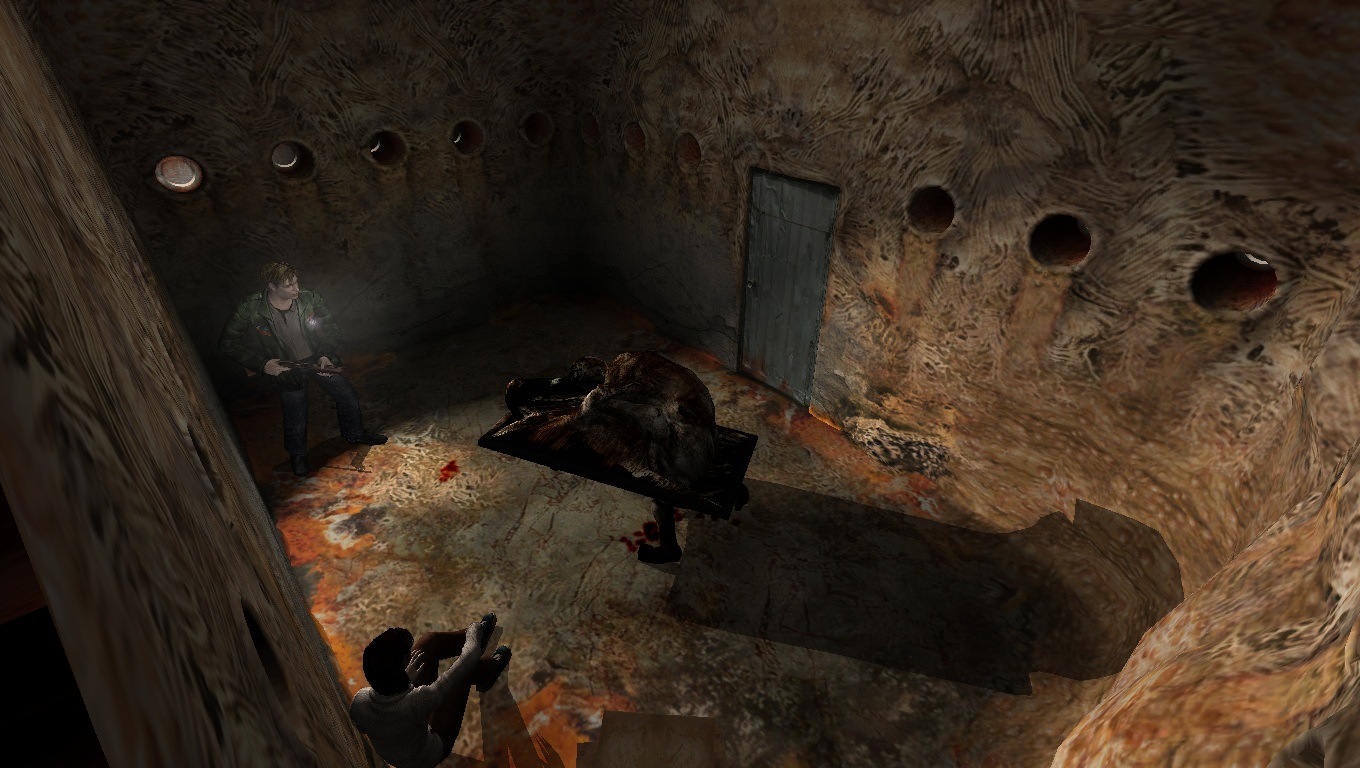





.jpg)














































































